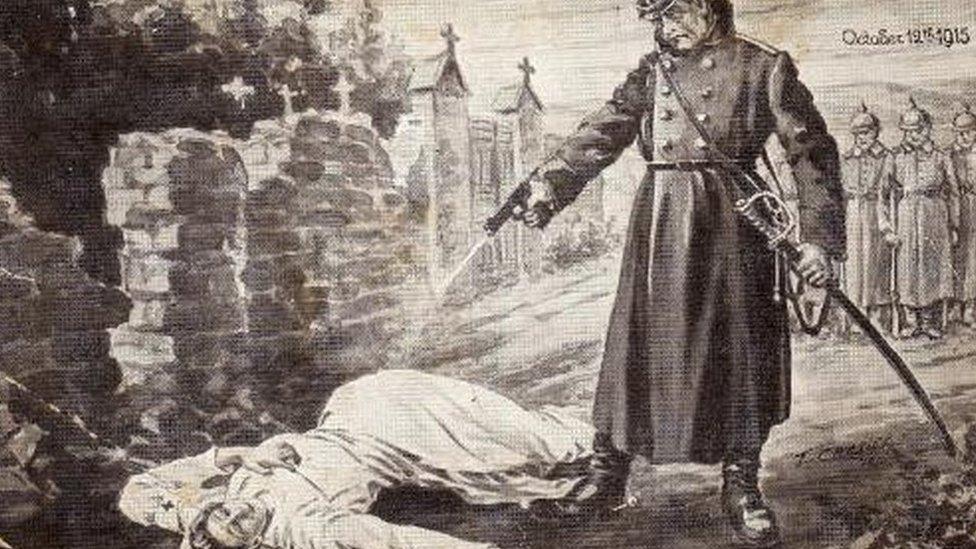Norwich Cathedral given Edith Cavell's 'last World War One letter'
- Published
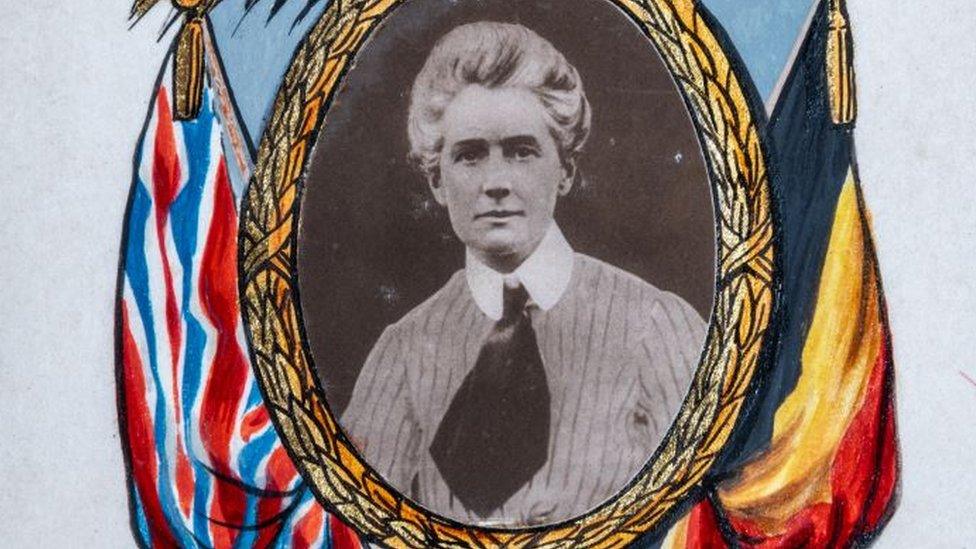
Edith Cavell, a heroine in Britain and Belgium, was expanding the hospital for wounded soldiers when arrested
A cathedral has been gifted a letter written by World War One nurse Edith Cavell just before she was shot.
She had helped British soldiers escape capture by German forces while her hospital cared for both sides' wounded.
Miss Cavell wrote to her mother Louisa from Brussels in 1915 to say she was "looking forward to a happy meeting", but within days she was arrested.
Her body was laid to rest at Norwich Cathedral, which has now been given the "last letter".
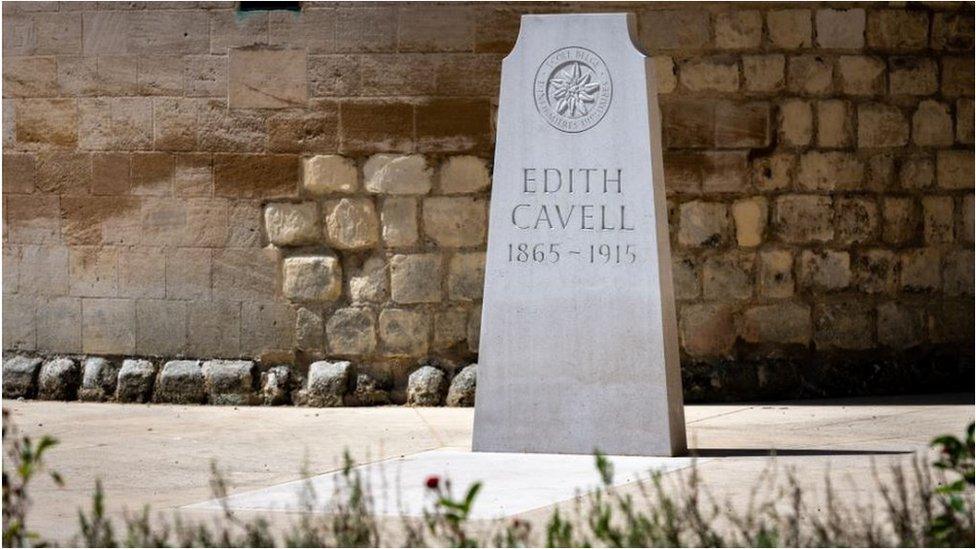
When nurse Edith Cavell's body was returned to Britain she was hailed a heroine
Miss Cavell was brought up at Swardeston near Norwich and the letter, the last to her mother, mentions holidays at West Runton on the Norfolk coast, a memory sparked by the rain in Belgium that was falling as she wrote.
The 50-year-old nurse's letter was donated by Greg Stewart, who received it from the late poet and playwright Roger Frith.
Mr Stewart said: "We had a common interest in WW1 history and I admired Roger's poetry, some of which was inspired by the trauma suffered by his father, Arthur Frith, during his four years with the London Rifle Brigade in France."
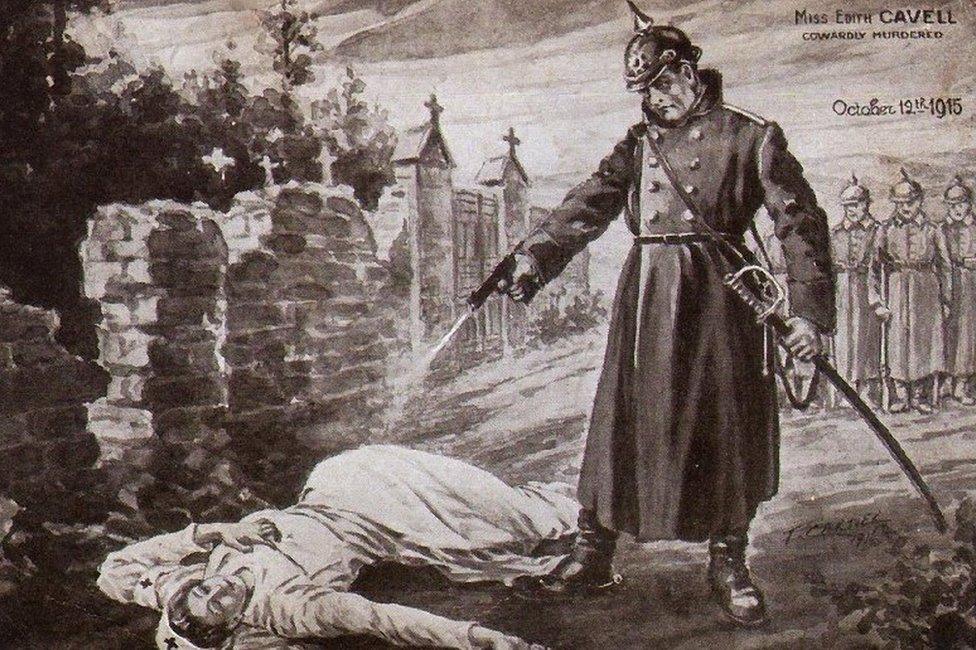
Early news reports, which inspired a number of propaganda postcards, incorrectly said Edith Cavell had fainted after refusing to wear a blindfold at her execution

Life of Edith Cavell
Born on 4 December 1865, the eldest of four children, in Swardeston, a village near Norwich
In 1896, started training to be a nurse at the Royal London Hospital under Matron Eva Luckes, a friend of Florence Nightingale
Completed her nursing training in 1898 and in 1907 became matron at the first nursing school in Belgium
On holiday in England when war breaks out, she quickly returns to Belgium. She soon begins helping Allied troops get home
Cavell is arrested in August 1915 by German troops who find her guilty of treason under a German military code - this allowed foreigners to be convicted of treason
Her role of a nurse, ordinarily protected under the Geneva Convention, was seen to have been forfeited as she was helping Allied soldiers escape
After a trial, at 07:00 on 12 October she is executed by firing squad

Mr Frith gave Mr Stewart the letter for safekeeping and as a mark of friendship.
"Roger told me that Edith's letter was originally gifted to his mother, Gladys, by the Cavell family," he said.
He believed the two families had church links as Arthur Frith was vicar-choral at St Paul's Cathedral and Edith Cavell's father, the Reverend Frederick Cavell, was vicar of Swardeston until 1909.
The Reverend Dr Peter Doll, current vice dean at Norwich Cathedral, said: "Nurse Cavell's letter is of immense historical value and is to go on public display."

Edith Cavell's letter to her mother, 26 July 1915
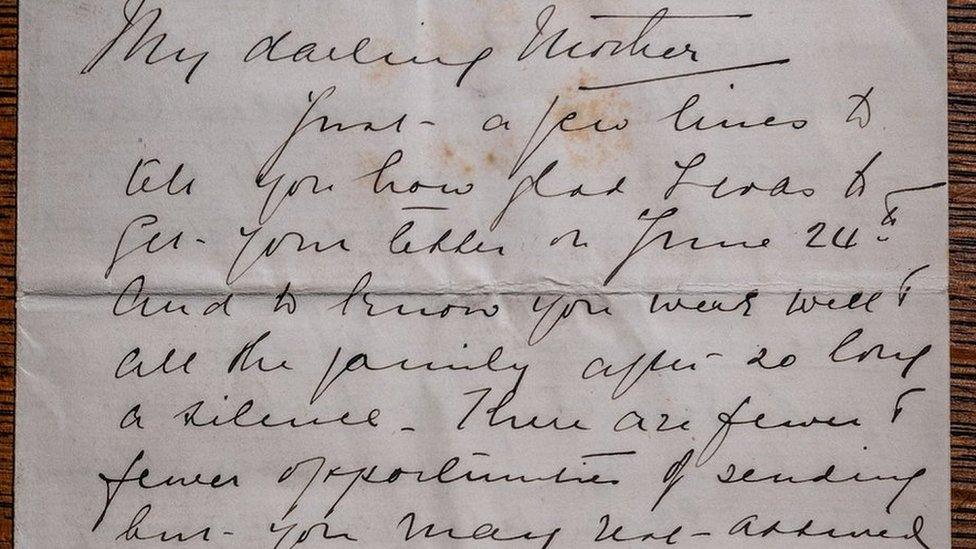
The letter hinted at the conditions Edith Cavell experienced while living with danger while caring for the wounded
My darling Mother
Just a few lines to tell you how glad I was to see your letter of June 24th and to know you were well & all the family after so long a silence. There are fewer & fewer opportunities of sending here - you may have assumed that - all goes on here as usual and that we are very well.
Gracie is better again but I fear not permanently - will you let her father know I received the money he sent, it was handed over to me by the German bank; they will probably have send [sic] him a receipt - signed by me.
About my pension fund. Will you pay it from now to Dec. from the £25 you have in hand & take your money as well. The pension falls due to me in Jan. I think. Will you ask them to pay it direct to you quarterly if they can - and use it yourself. I enclose a word for the Secretary Mr Dick.
We are without news and very quiet and I can tell you nothing - after, when I return there will be much to relate. We move into the new School at the end of this week or the beginning of next. It advances rapidly now & the nurses are nearly all there already. The patients will be moved at the last.
The little garden in front is gay with flowers & the cleaning in progress. It is very dirty as you may imagine & will want going over many times before it is really nice as the workmen are still in and are not likely to finish for some time yet.
We have had much rain. I often think of W. Runton & and of how much we should have regretted such a wet July. Will you please reply to the address which will be enclosed with this letter. I shall get your answer surely tho' probably with some delay.
We have more patients just now and are glad we shall not have to move them far. When I can get a good photo of the new place I will try & send it to you. Jackie is well & sends a lick - he gets old & is not quite so frisky as he used to be - there are no longer any motor-cars to run after but he lays outside and keeps his street in order & is overjoyed at a walk.
My dearest love to you & to all the family. I am looking forward to a happy meeting later on.
Ever your affectionate daughter
Edith
26th July 1915

A short animation showing the life of Edith Cavell during World War One.

Find BBC News: East of England on Facebook, external, Instagram, external and Twitter, external. If you have a story suggestion email eastofenglandnews@bbc.co.uk, external
- Published15 May 2019
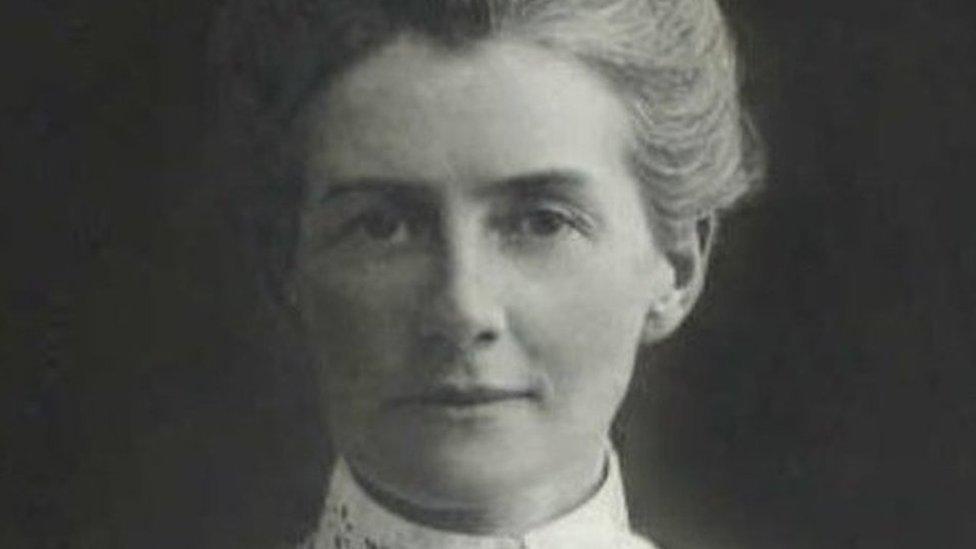
- Published5 July 2014
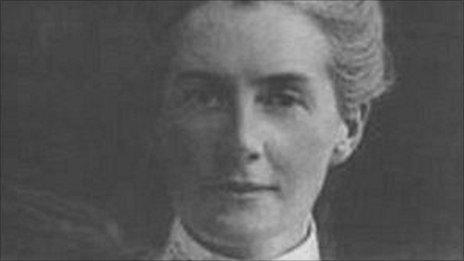
- Published12 October 2015
